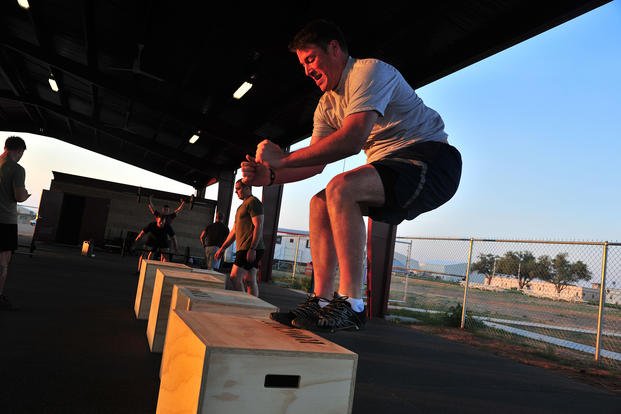People fail and succeed, whether in life events, work, family or exercising at any level of fitness. What can be done to achieve a higher rate of success? In many instances, there is a fine line between success and failure, and it often depends on three things: self-motivation, no drama and no excuses, and learning to listen to your body.
I have gathered this information from experiences through local training groups and questions/comments shared with me online over the past few months. Below are tips and further discussion on the three common denominators that will help you with your training program.
Self-Motivation
Notice the hyphenated word. It is not anyone's job to motivate you to do anything. Someone may inspire you, but in the end, it is your job to stay motivated and take on the daily requirements to reach your goal.
This goes for anything, but in the context of training hard for a fitness goal in order to serve in the military and Special Ops world, it comes down to how much "want to" you have. Do you want to wake up early to train, work the rest of the day and maybe train again in order to change your weaknesses into strengths? Do you have enough "want to" to endure long runs, longer rucks and cold swims? Do you "want to" push through painful elements like carrying logs on your shoulder or boats on your head?
Of course, there are people on the other side of the fitness spectrum who are just trying to get healthy and face similar self-motivation challenges. Starting to build good healthy habits like eating right and moving daily is challenging at first. With some persistence, self-motivation and determination, though, you can eat right for better energy levels and use that to exercise before or after a long, stressful workday.
Need a plan to help you with daily, habit-building "motivation"? See the free 45-Day Plan and get started today.
Regardless of your fitness goal, and even on both spectrums, it does help to have a like-minded partner or group with which to train. Having another person that you feel you will let down if you don't show up at the time you allotted for daily fitness is probably one of the best things you can do to ensure success with your training program.
Self-motivation is cumulative. The more self-motivated people you can get into a group, the more motivated you will become.
No Drama, No Excuses
People who make excuses for themselves or make a dramatic scene out of nearly every normal event life throws at them tend to have issues with success. We all have bad days, even very bad days with more important things to do than train every now and then.
This happens. Take a day and deal with what life throws at you, and if you need support, you will find that your friends and family will help you in the worst of times. Maybe in these situations, a quick 20-minute workout will help you relieve some stress and clear your mind when dealing with real issues, even if it is a quick walk after a meal.
However, no one wants to hear about how bad the traffic is or that your dog kept you awake all night. If you are tired and need a day off, take a day off. We all get sick and need to stay in bed some days.
There's no need to put more drama around the situation and make others suffer with you. "Suffer in silence," we always say. Needing help from friends and adding drama to their lives are two different things.
Know the difference and remember: No whining.
Seek Recovery
You have to listen to your body and know when to take a rest day. A day of stretching, mobility training, extra sleep or just an easy fitness day goes a long way with helping your body recover from previously challenging workouts.
Everything needs to be in perfect balance to make things work optimally. Sleep, nutrition, hydration, electrolytes and smart training programming (with programmed easy or rest days) are critical to people succeeding. Those things reduce the chances of injury, illness and other setbacks, and having the energy to train again the following day.
You could say there are four things that are most helpful in seeing success in your fitness training: self-motivation, a like-minded training partner, making no drama or excuses for yourself, and actively pursuing recovery in order to rest and be ready for tomorrow. Good luck and, when in doubt, start moving or resting toward your goal.
Stew Smith is a former Navy SEAL and fitness author certified as a Strength and Conditioning Specialist (CSCS) with the National Strength and Conditioning Association. Visit his Fitness eBook store if you're looking to start a workout program to create a healthy lifestyle. Send your fitness questions to stew@stewsmith.com.
Want to Learn More About Military Life?
Whether you're thinking of joining the military, looking for fitness and basic training tips, or keeping up with military life and benefits, Military.com has you covered. Subscribe to Military.com to have military news, updates and resources delivered directly to your inbox.


















